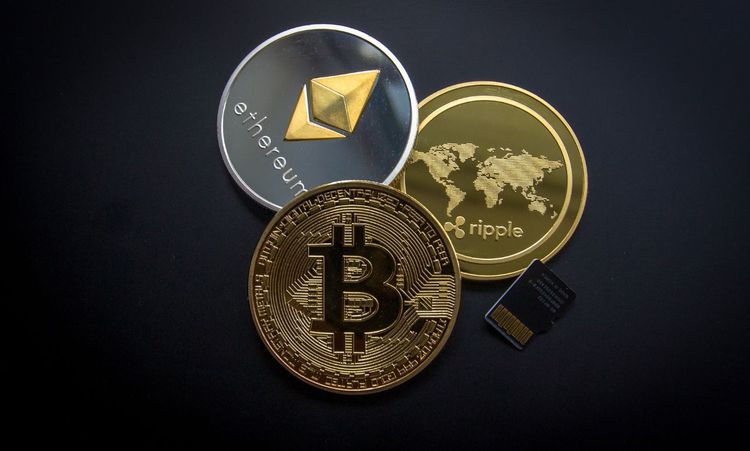The Role Of Smart Contracts In Blockchain Development
Smart contracts have transformed how we think about agreements in the digital world. Unlike traditional contracts that require intermediaries, smart contracts execute automatically when predetermined conditions are met. They run on blockchain technology, which is their foundation and security mechanism. This article will explain how smart contracts work and why they become essential across industries.
What are Smart Contracts on Blockchain? Smart contracts are self-executing pieces of code that automatically implement the terms of an agreement when specific conditions are met. Think of them as digital vending machines. You put in the right amount of money, press the button, and the machine gives you what you paid for—no cashier needed. Nick Szabo, a computer scientist and legal scholar, first proposed smart contracts in the 1990s. However, they only became practical with the emergence of blockchain technology in the 2010s. Ethereum popularized them by creating a platform designed to run these automated agreements.
How Smart Contracts Work
Smart contracts operate through a simple "if-this-then-that" logic. The contract automatically executes the corresponding action when certain conditions are verified as accurate. Here's how it typically works: The contract code is written, specifying all conditions and outcomes This code gets deployed to a blockchain network The network of nodes validates the contract When triggering conditions occur, the contract self-executes For example, imagine making an online purchase using a smart contract. When your payment confirms on the blockchain, the smart contract immediately releases digital proof of ownership to you. You don't have to wait for a company to process your order or verify your payment—the transaction completes in seconds. The code is stored across multiple computers (nodes) in the blockchain network. This decentralization means no single entity controls the contract, making it impossible to manipulate or stop.
Facilitating Decentralized Finance
Decentralized Finance (DeFi) represents one of the most significant applications of smart contracts today. Traditional financial systems rely on institutions like banks and brokerages as trusted intermediaries. Smart contracts eliminate this need by creating trustless systems where code enforces the rules. DeFi platforms use smart contracts to offer loans, trading, and investment opportunities without traditional gatekeepers. Users can lend their crypto assets and earn interest or borrow against their holdings without credit checks or paperwork. The interest rates adjust automatically based on supply and demand, all governed by smart contract logic. Liquidity mining—a process where users provide funds to trading pools and receive tokens as rewards—has become particularly popular. Smart contracts calculate and distribute these incentives automatically, creating new ways for people to earn returns on their digital assets. Markets operate 24/7 without human intervention, opening financial services to anyone with an internet connection. I've seen firsthand how this accessibility transforms lives. People locked out of conventional banking now access previously unavailable financial tools. A friend in Venezuela uses DeFi platforms to protect his savings from hyperinflation—something impossible with local banks.
Enhancing Transparency and Security
Every transaction processed through a smart contract is recorded on the blockchain, an immutable ledger visible to all participants. This transparency creates unprecedented accountability in digital transactions. Security comes from the blockchain's architecture and the smart contract's code. Once deployed, the agreement can't be altered unless specifically designed with upgrade capabilities. The network of nodes must reach consensus to validate any transaction, making fraudulent activity extremely difficult. However, security depends heavily on the quality of the code. Smart contracts operate precisely as programmed, including any bugs or vulnerabilities. Several high-profile hacks have resulted from flawed smart contract code, leading to financial losses. This is why rigorous auditing has become standard practice before deploying important contracts. My company once collaborated with a smart contract development team that spent more on auditing than coding. This investment paid off when the audit discovered a critical vulnerability that could have compromised millions in user funds. The transparency of blockchain makes security more necessary, not less.
Reducing Human Error and Manual Intervention
Human error costs businesses billions annually. Smart contracts eliminate this problem by replacing manual processes with automated code execution. Once the contract conditions are met, the outcome happens automatically—no paperwork lost, details misremembered, or data entered incorrectly. Take insurance claims as an example. Traditional processing requires adjusters, paperwork, and days or weeks of waiting. A smart contract connected to verified data sources could automatically process and pay out claims for flight delays or crop insurance based on weather data. Some insurance companies have already implemented this approach, reducing insurer costs and improving the experience for policyholders. Administrative tasks like document verification, payment processing, and record keeping happen instantly and accurately. This automation frees human resources for more valuable work that requires creativity and judgment—tasks machines can't handle well.
Application Logic Contracts
Application Logic Contracts represent the backbone of decentralized applications (dApps). Unlike simple transfer contracts, these sophisticated agreements contain complex business logic that powers entire platforms and services on the blockchain. Developers build these contracts to handle specific functions within larger systems. They might manage user permissions, calculate rewards, facilitate governance votes, or coordinate interactions between multiple other agreements. The modular nature allows for incredible flexibility while maintaining security. Programming these contracts requires specialized knowledge of languages like Solidity (for Ethereum) and understanding blockchain constraints. Gas fees—the cost to execute operations on the network—force developers to optimize code for efficiency. Every operation costs money, so streamlined code becomes essential. This optimization challenge has sparked innovations in development environments and testing frameworks. Tools like Hardhat and Truffle have emerged to help developers build and test complex contracts before deploying them to the main net, where errors become costly.
Real Estate Tokenization
Real estate, traditionally illiquid and accessible only to wealthy investors, is transformed by smart contract tokenization. This process splits property ownership into digital tokens representing shares of the underlying asset. These tokens can be bought, sold, or traded on blockchain platforms with minimal friction. Smart contracts manage the entire lifecycle—from initial offering to dividend distribution. When a property generates rental income, the smart contract automatically calculates each investor's share based on their token holdings and distributes payments accordingly. There is no waiting for quarterly checks or manual calculations. Micro-investments become possible when minimum buy-ins drop dramatically. People can start with just a few hundred dollars instead of needing hundreds of thousands to invest in property. This democratization opens the property market to entirely new categories of investors.
Supply Chain Management
Supply chains suffer from fragmentation, with multiple parties maintaining separate records and limited visibility across systems. Smart contracts offer a solution by creating a single, trusted information source that all participants can access and verify. From raw materials to finished products, smart contracts track items through each stage of production and delivery. IoT sensors can feed data directly to these contracts, automatically updating location, temperature, or condition information. If shipping conditions violate requirements (like temperature thresholds for pharmaceuticals), the smart contract can trigger alerts or even payment penalties immediately. Agricultural supply chain platforms use this technology to verify organic certification or fair trade practices. Consumers scan QR codes to view the complete journey of products from farm to store—all verified through tamper-proof blockchain records maintained by smart contracts. These systems dramatically reduce disputes. When disagreements arise, all parties refer to the same immutable record rather than comparing conflicting internal documents. Resolution happens faster with objective data available to everyone involved.
Decentralized Exchanges
Decentralized exchanges (DEXs) operate entirely through smart contracts without centralized authorities controlling user funds. Traditional exchanges hold your assets during trading, creating security risks and potential points of failure. DEXs allow peer-to-peer transactions with assets that never leave your control until the moment of exchange. These platforms use automated market maker contracts that establish prices based on mathematical formulas rather than traditional order books. Users trade against liquidity pools rather than directly with other traders. The smart contracts handle all pricing, execution, and settlement instantly. Market makers provide liquidity to these pools and earn transaction fees proportional to their contribution. The entire system runs autonomously through smart contract logic, with minimal human oversight required. Complex operations like margin trading and futures contracts now function through sophisticated smart contract systems. Transaction fees typically run lower than centralized alternatives since there's no company taking a cut for profit. Removing KYC requirements also creates greater privacy and accessibility, though this raises regulatory questions in some jurisdictions.
Complexity and Compatibility Concerns
Complexity remains their greatest vulnerability. As contracts grow more sophisticated, the potential for bugs or exploits increases exponentially. Even small coding errors can lead to catastrophic failures when millions of dollars flow through these systems. Compatibility between different blockchain platforms creates another hurdle. Ethereum smart contracts can't directly interact with Bitcoin or other blockchains without special bridges or oracles. These connection points introduce additional complexity and potential security weaknesses. The immutable nature of smart contracts, while beneficial for trust, creates problems when changes become necessary. Unlike traditional software that can be patched, deployed contracts generally can't be altered. Developers now implement upgrade patterns and governance mechanisms to address this limitation, but these solutions introduce their complexities. Innovations and Emerging Trends The smart contract space evolves rapidly, with several exciting trends emerging. Cross-chain compatibility protocols aim to solve the interoperability problem by creating standards for contracts to communicate across different blockchains. This could unite previously isolated ecosystems into a more cohesive and powerful network. Zero-knowledge proofs enable private transactions and computations within public blockchains. These cryptographic techniques allow smart contracts to process sensitive information without revealing the underlying data, opening possibilities for privacy-preserving financial applications and identity solutions. Layer 2 scaling solutions address performance limitations by processing transactions off the main blockchain while maintaining security guarantees. This dramatically reduces costs and increases throughput, making smart contracts practical for everyday applications. Decentralized Autonomous Organizations (DAOs) represent the most ambitious application of smart contracts. These entities operate through democratic governance encoded in smart contracts rather than traditional corporate structures. Members vote on proposals that execute automatically when approved, creating organizations without conventional management hierarchies.
Conclusion
Smart contracts are pivotal in blockchain's evolution from simple currency to sophisticated digital infrastructure. Their ability to automate agreements, reduce costs, and create trustless systems continues to disrupt industries previously resistant to change. While challenges around complexity, security, and regulation remain, the pace of innovation suggests solutions will emerge. As development tools mature and best practices solidify, we'll likely see smart contracts become as common in business operations as spreadsheets and databases. The future points toward increased mainstream adoption as more businesses recognize these technologies' efficiency gains and cost savings. Whether facilitating financial transactions, managing supply chains, or powering decentralized applications, smart contracts will continue to reshape how we conceptualize and execute agreements in the digital age.




